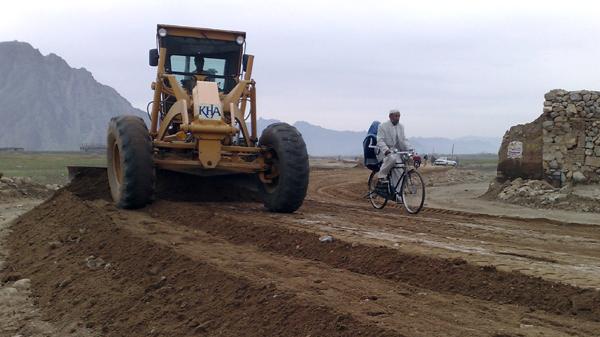KABUL - Afghanistan’s Ministry of Finance and the World Bank (WB) signed yesterday for a US$ 125 million grant from the WB’s International Development Association (IDA) to finance improvement and maintenance of rural roads and bridges so as to enable Afghanistan’s rural communities to have better access to basic services. Download the World Bank-Ministry of Finance Press Release in English | Dari | Pashto
According to a joint press release issued by the World Bank in Afghanistan and the Ministry of Finance, the total cost of the Afghanistan Rural Access Project (ARAP) is estimated to be around US$ 332 million of which the World Bank is financing US$ 125 million, while the WB-administered multi-donor trust fund will finance the remaining US$ 207 million. Ministries of Public Works and Rural Rehabilitation and Development will implement the project over the period of five years.
“The project is expected to increase the number of people living within two kilometres of all-season roads, reduce travel time to essential services, and enable rural people to access essential services more frequently,” stated the press release.
The Deputy Finance Minister, Mustafa Mastoor, said since over 80 per cent of the Afghans live in rural areas building rural infrastructure is all the more important for the people’s well-being and overall economic growth. “Connecting villages with each other and with towns and cities will not only improve villagers’ welfare, but also help bring peace, stability and prosperity,” said Mr Mastoor in the press release.
According to the press release, Afghanistan’s tertiary road network is estimated at 80,000 km, of which only about 7,000 km are accessible to motor vehicles in all seasons; the rest are tracks mostly inaccessible to motor vehicles. Of the roads that remain accessible to motor vehicles all year, an estimated 5,000 km are believed to be in maintainable state, while the rest are in poor condition and need rehabilitation.
The WB Country Director for Afghanistan, Bob Saum, said the rehabilitation of rural infrastructure in Afghanistan has led to “encouraging improvements” in rural livelihoods. “Alleviating poverty through interventions that help create jobs, provide access to basic services and create an enabling environment to private sector investments remains the World Bank’s paramount focus in its support of Government efforts,” said Mr Saum, while pledging to continue to support Afghanistan’s efforts in sustaining progress made so far and to help it to expand into villages where Afghans still wait to benefit from development.
Related link: World Bank in Afghanistan






